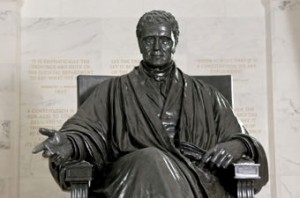Can You Tell a Terrorist to Abandon Violence?
 According to the U.S. Supreme Court, it appears that Americans aren’t allowed to interact with listed terrorist groups, even to provide them the kind of assistance that on its face would appear to conform precisely to American policy aims. In the case of Holder vs. Humanitarian Law Project, a group of American activists sought permission in advance before holding workshops to teach nonviolent political negotiation to a group listed as a foreign terrorist organization by the U.S. State Department. In this case, the groups involved were the Kurdistan Worker’s Party, or PKK, the militant Kurdish separatist group, and the LTTE, or Tamil Tigers, in Sri Lanka. The court ruled 6-3 that such assistance would violate American laws that prohibit providing material assistance to terrorists.
According to the U.S. Supreme Court, it appears that Americans aren’t allowed to interact with listed terrorist groups, even to provide them the kind of assistance that on its face would appear to conform precisely to American policy aims. In the case of Holder vs. Humanitarian Law Project, a group of American activists sought permission in advance before holding workshops to teach nonviolent political negotiation to a group listed as a foreign terrorist organization by the U.S. State Department. In this case, the groups involved were the Kurdistan Worker’s Party, or PKK, the militant Kurdish separatist group, and the LTTE, or Tamil Tigers, in Sri Lanka. The court ruled 6-3 that such assistance would violate American laws that prohibit providing material assistance to terrorists.
I will write at greater length about this case later, and the many complicated questions that it raises. But right off the bat, it makes me wonder:
- Are the go-betweens who take messages to listed terrorist groups and report on their meetings to U.S. diplomats now legally liable?
- What happens if a listed terrorist group wants to abandon violence and learn politics? Who is allowed to advise them?
- Do journalists violate the material support law when they interview members of listed terrorist groups and publish their statements?
- When the U.S. government sends out feelers to listed terrorist groups, using intelligence operatives or other means, are they violating the law? Or is the government itself exempt? Or is a secret presidential finding necessary?
- If teaching terrorists about human rights law is equivalent in the eyes of the law to giving money to terrorists, what are the implications for free speech? Have words and money, political speech and military donations, become indistinguishable in the eyes of the law? What further avenues of prosecution would be opened such a finding?
The Supreme Court decision is here. Read the news story and the editorial in The New York Times, and other links on the homepage of the Humanitarian Law Project.

